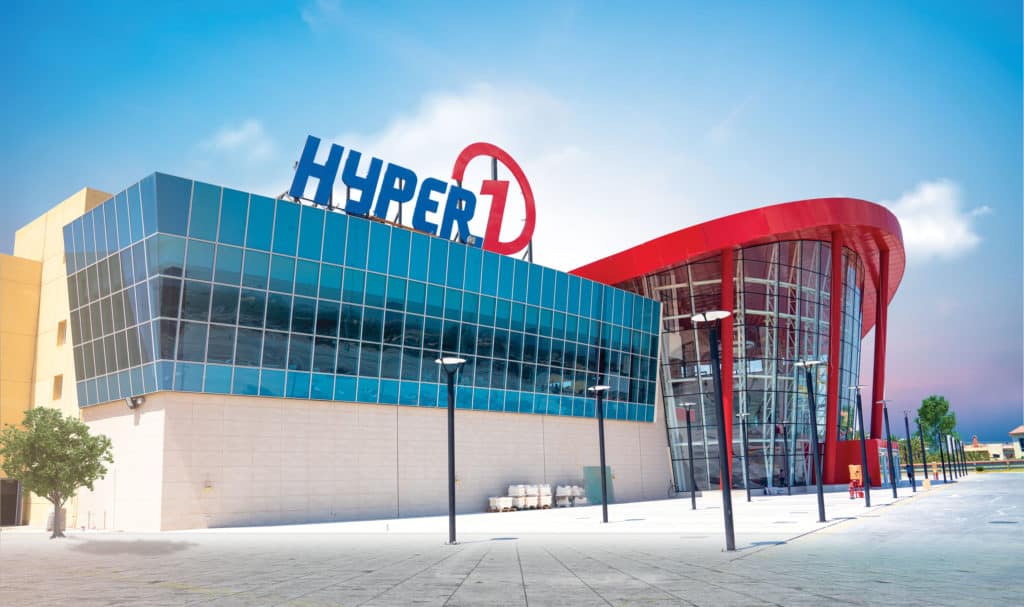FORTE CLOUD is an AWS Advanced Consulting Partner, Solution Provider, and Value-Added Reseller in MEA with SAP Competency.

Hyperone reduces the cost of running SAP by 40 percent using AWS while also gaining business insight 78 percent faster. Hyperone is one of the biggest hypermarket chains in Egypt. The company runs its SAP and SAP HANA database on a combination of Amazon EC2 instances with Amazon EBS, Amazon EFS, and Amazon S3 for storage.
Hyperone is a major hypermarket chain in Egypt with more than 5 million regular customers. The company, which has 4,000 employees, has seen double-digit growth for the past 14 years.
For Hyperone and other retailers, SAP is transforming business practices. Away from the aisles of fully stocked shelves, SAP Enterprise Resource Planning (ERP) infrastructures are digitizing supply chains for better material flows and enabling a more customer-centric approach, using data to detect and predict consumer needs.

The commitment by FORTE CLOUD to our SAP on AWS project was excellent.
Mohamed Shalaan
Information Systems Manager, HyperOne
To fully realize SAP’s potential, Hyperone needed to overhaul the on-premises platform underpinning the systems. The platform lacked the performance, reliability, and flexibility to fully enable digitization and support e-commerce and better data insight. Mohamed Shaalan, Head of the IT department at Hyperone, says, “While we were planning to migrate our SAP database from Oracle 11g to SAP HANA, we saw that we faced significant challenges with our on-premises infrastructure. It could take weeks to make new deployments, reducing staff productivity. We couldn’t reach the 99.999 percent availability that an ambitious hypermarket chain like ours wants, and we never had the processing power to really support innovation.”
The Head of IT saw the benefits of migrating the SAP infrastructure to the cloud. “It would reduce our TCO (total cost of ownership), enabling us to move away from a CAPEX IT model to an OPEX one,” he says. Yet, Shaalan wanted the cloud to do more than simply lower cost. “It’s why we chose AWS (Amazon Web Services),” he comments. “AWS would help us reduce our TCO, no problem. But it would also help us deliver the productivity, reliability, and agility to increase the business value of our SAP systems.”
Before our uptime for SAP was 97.471 percent. We’ve improved on that with AWS, allowing us to gain more business value from our SAP investment. Our infrastructure is more resilient than ever.”
- Mohamed Shaalan, Head of IT Department, HyperOne
For the SAP migration to AWS, Hyperone engaged FORTECLOUD, an AWS Advanced Consulting Partner with SAP Consulting Competency. FORTE CLOUD used its SAP on AWS expertise to ensure the AWS environment for Hyperone met best practices. The partner helped build the AWS infrastructure and provided training to the Hyperone IT team. “The commitment by FORTE CLOUD to our SAP on AWS project was excellent,” states Shaalan. “FORTE CLOUD understood how important our migration project was to the future development of Hyperone. Its consultation services, implementation, and training support were some of the best I’ve seen.”
By migrating and upgrading its SAP systems to SAP HANA database to AWS, HyperOne has reduced TCO by 40 percent. The saving is achieved because the company no longer has to buy hardware, paying a monthly fee to AWS instead. Plus, the AWS servers behind the systems are flexible, so HyperOne can scale them up and down in line with workloads to optimize server spend. Says Shaalan, “The ease of using AWS means we spend much less time on infrastructure management and can focus on enhancing our SAP systems and IT innovations.”
FORTE CLOUD understood how important our migration project was to the future development of HyperOne. Its consultation services, implementation, and training support were some of the best I’ve seen.”
- Mohamed Shaalan, Head of IT Department, HyperOne
Not only does the IT team have more time for development, team-members are also more productive. That’s because they have a more effective development and test environment for SAP on the AWS infrastructure. Developers spin up an environment on AWS, take copies of the data they need for development, and proceed to the build and testing phases. “Deployment times have gone from months to days and weeks because we don’t have to procure and configure hardware anymore. We spin up and down environments on AWS as we need them,” states Shaalan.
With AWS, HyperOne has increased the availability of its SAP systems across the business. Comments Shaalan, “Before, our uptime for SAP was 97.471 percent. We’ve improved on that with AWS, allowing us to gain more business value from our SAP investment. Our infrastructure is more resilient than ever.”
With SAP on AWS, HyperOne is able to process key data and deliver business-critical reports significantly faster than before. Sales data from every store is processed in batches at the end of each day and reported back to the supply-chain team, so they can see whether stocks need replenishing. In the past, it took 6–7 hours to process all the batches, but now it takes no more than 1.5 hours. “It means we can complete all processing while the stores are closed and see which products we need to re-order or which products are still on the shelves and may need discounting,” says Shaalan. “It helps us avoid products being out of stock or passing their sell-by dates.”
The business value of SAP on AWS will increase over the coming months as HyperOne adds e-commerce to its sales channels. The company plans to integrate a Magento cloud platform for e-commerce websites with its AWS infrastructure. The goal is to connect Magento on AWS with its SAP systems for data to follow from e-commerce transactions seamlessly into SAP. “I looked at Magento and saw how easy it would be to run on AWS and integrate with SAP,” says Shaalan. “Being able to integrate services and manage your data easily to extract insight are the real value of AWS.”
Businesses of all sizes across all industries are transforming their organizations each day using AWS and FORTE CLOUD. Contact our professionals and start your AWS Cloud journey today.
FORTE CLOUD is an AWS Advanced Consulting Partner, Solution Provider, and Value-Added Reseller in MEA with SAP Competency.
© 2021, FORTE CLOUD. All rights reserved
Terms of use | Privacy policy